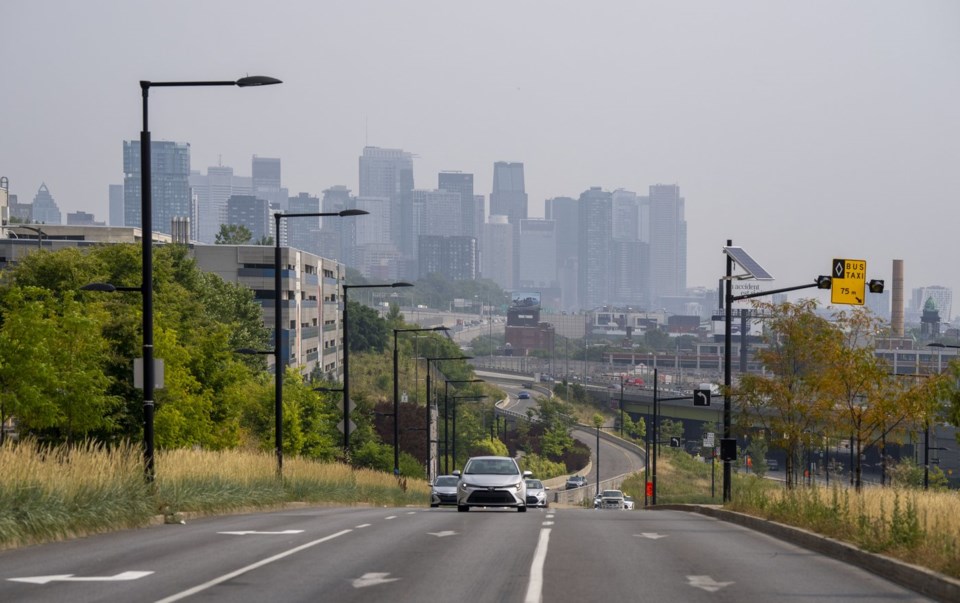MONTREAL — One heat-related death has been reported to Montreal's public health department since a period of extreme heat hit the city on Sunday.
Department spokesperson Tudor Matei says the city's health agency has been notified of five other heat-related deaths this year, when temperatures soared in late June.
Matei, with the environmental emergency unit, said he's surprised that only one death has been reported since Sunday.
“It is a little strange, because we've seen some pretty intense temperatures,” he said, adding it might be because people have gradually become accustom to extreme heat.
Temperatures exceeded 33 C in Montreal on Sunday and Monday, and the high Tuesday was expected to reach 34 C. Environment Canada says Wednesday's high should be 29 C, with seasonable temperatures returning on Thursday.
Eric Lavigne, an epidemiologist with Health Canada, said the number of heat-related deaths in Montreal this year may be undercounted.
During periods of extreme heat, he said, hospitalization rates rise for respiratory illnesses, cardiac conditions, diabetes and mental health-related problems. While heat might play a role in the deaths of patients admitted for other reasons, extreme weather might not be recorded as a factor, Lavigne said.
“Sometimes it’s difficult to establish if (a death is) caused by the heat,” said Lavigne, who is also a professor in the faculty of health sciences at the University of Ottawa.
Montreal's public health department issued a notice on Sunday to emergency room doctors asking them to report any deaths believed to be caused by the heat. The health agency asks for this data, including the number of patients admitted to hospital for heat stroke, any time Environment Canada issues extreme heat warnings for the city.
This is the second time this summer the city's public health department asked ER doctors to report heat-related deaths and cases of heat strokes. The first was in June.
As of Tuesday there were no reports of heat stroke hospitalizations during the current heat wave, the department said.
Matei said these figures are collected from a wide array of sources, like paramedics, police, the fire department, and occasionally long-term care homes.
Dr. Anne-Sara Briand, who is responsible at Montreal's public health department for preventing climate change-related deaths, said heat waves are becoming more frequent in the city.
"What we're seeing is that heat waves are increasing in intensity, frequency, and even that they’re longer," she said.
During a heat wave in June 2024, the city's health department received reports of 15 deaths related to heat, and 16 cases of heat stroke.
Briand said it's important to collect health data during periods of extreme heat, considering the number of days when temperatures will exceed 30 C is projected to triple over the next 15 years in the city.
“This allows us to better identify who is affected and how we can better prevent risks to people’s health,” Briand said.
Matei said ER doctors are encouraged to look out for symptoms of heat stroke to ensure nothing gets missed. They're also asked to consider whether someone's chronic condition could be exacerbated by the heat.
“Do I believe that there's things that are going under the radar? Quite possibly,” he said. “There's no reporting system that's perfect, especially not in the health sector, but we do the best we can.”
This report by The Canadian Press was first published Aug. 12, 2025.
The Canadian Press




